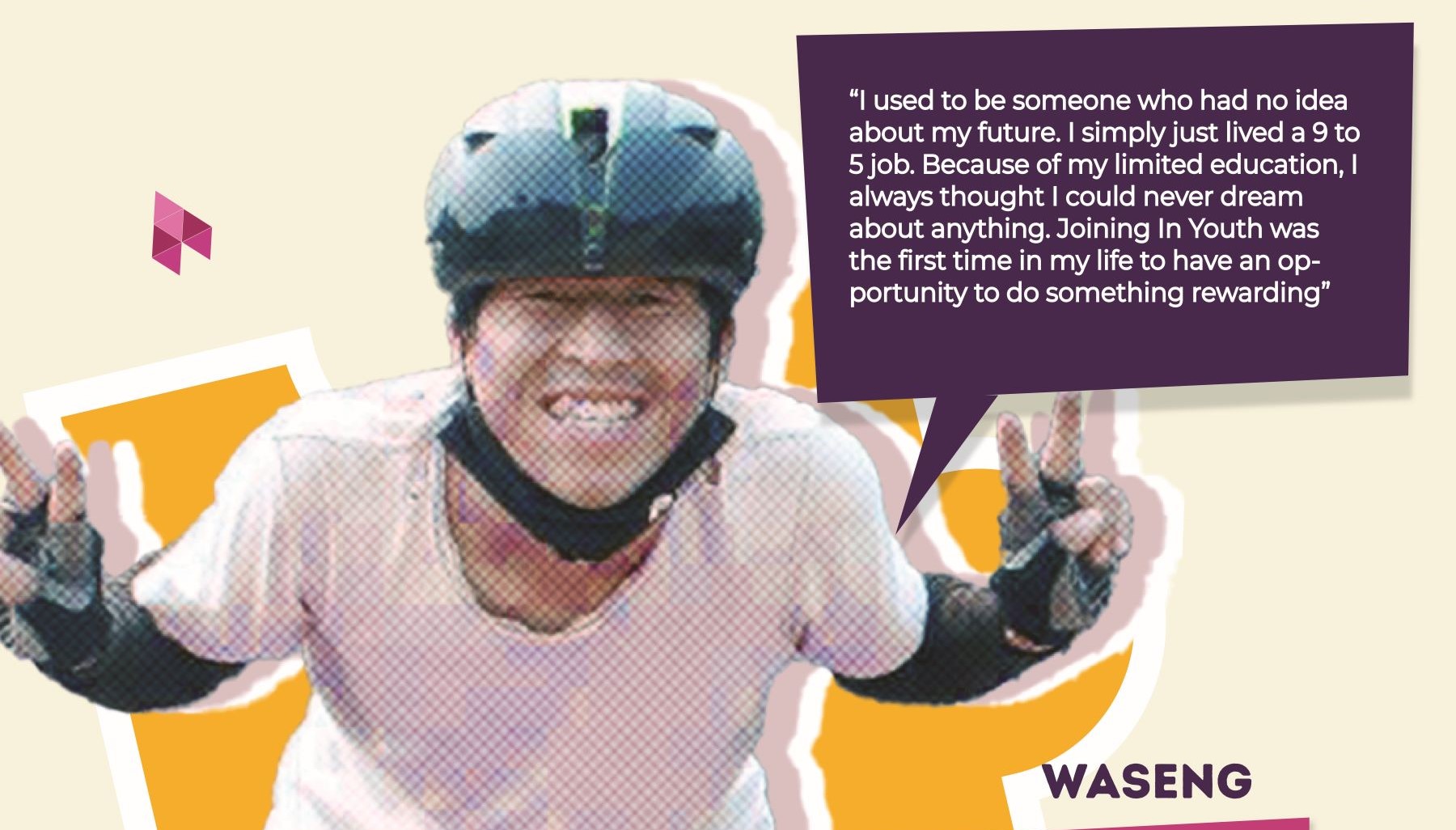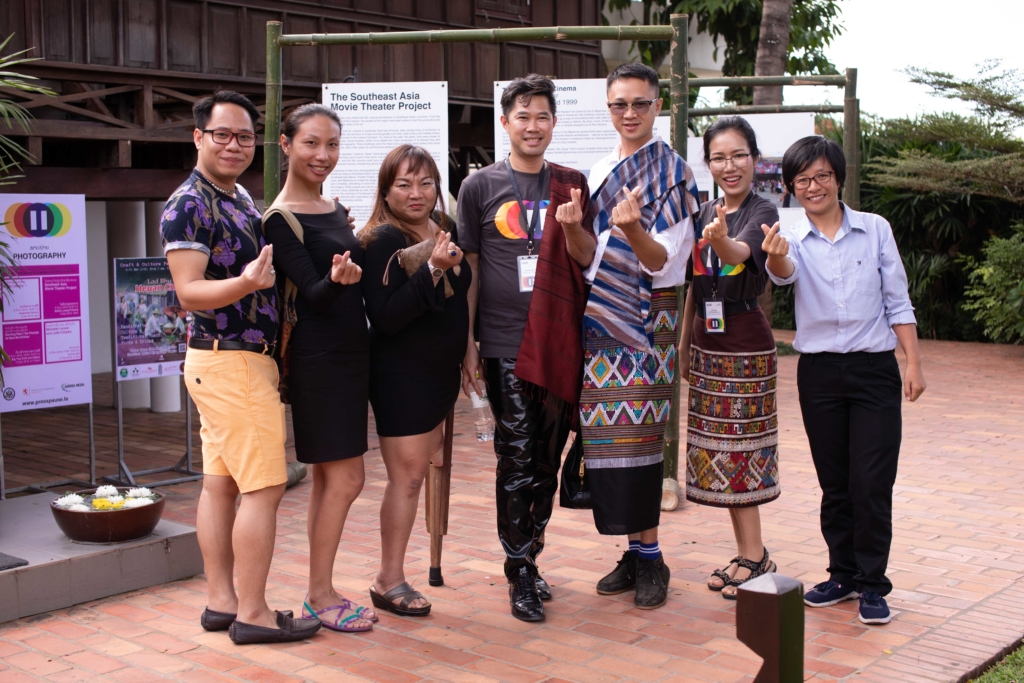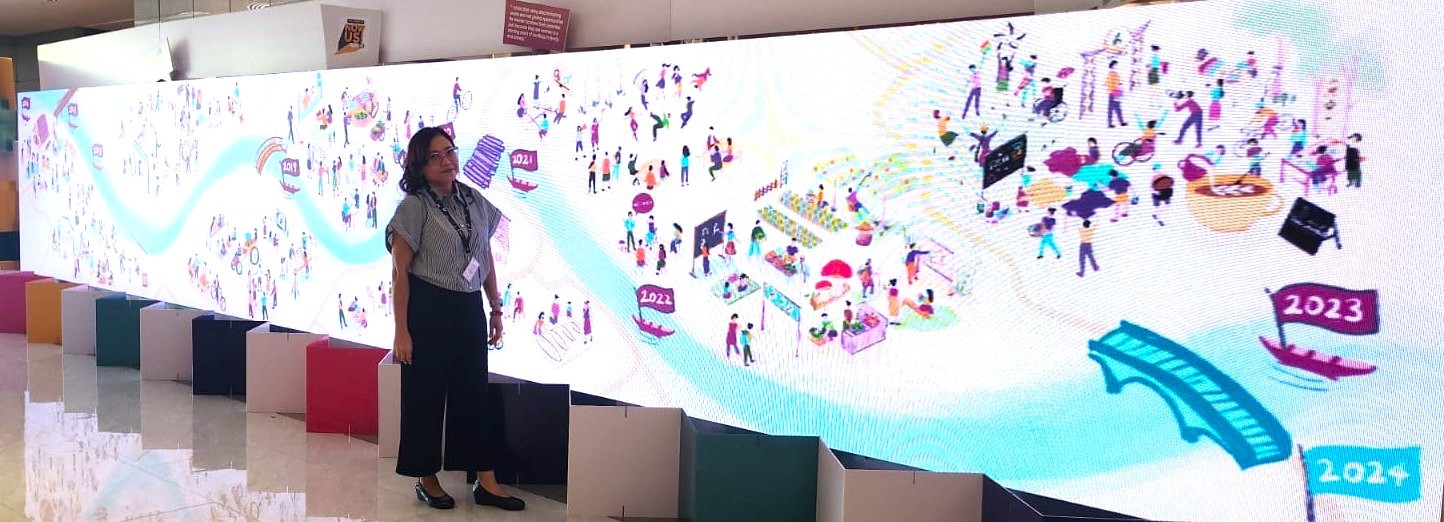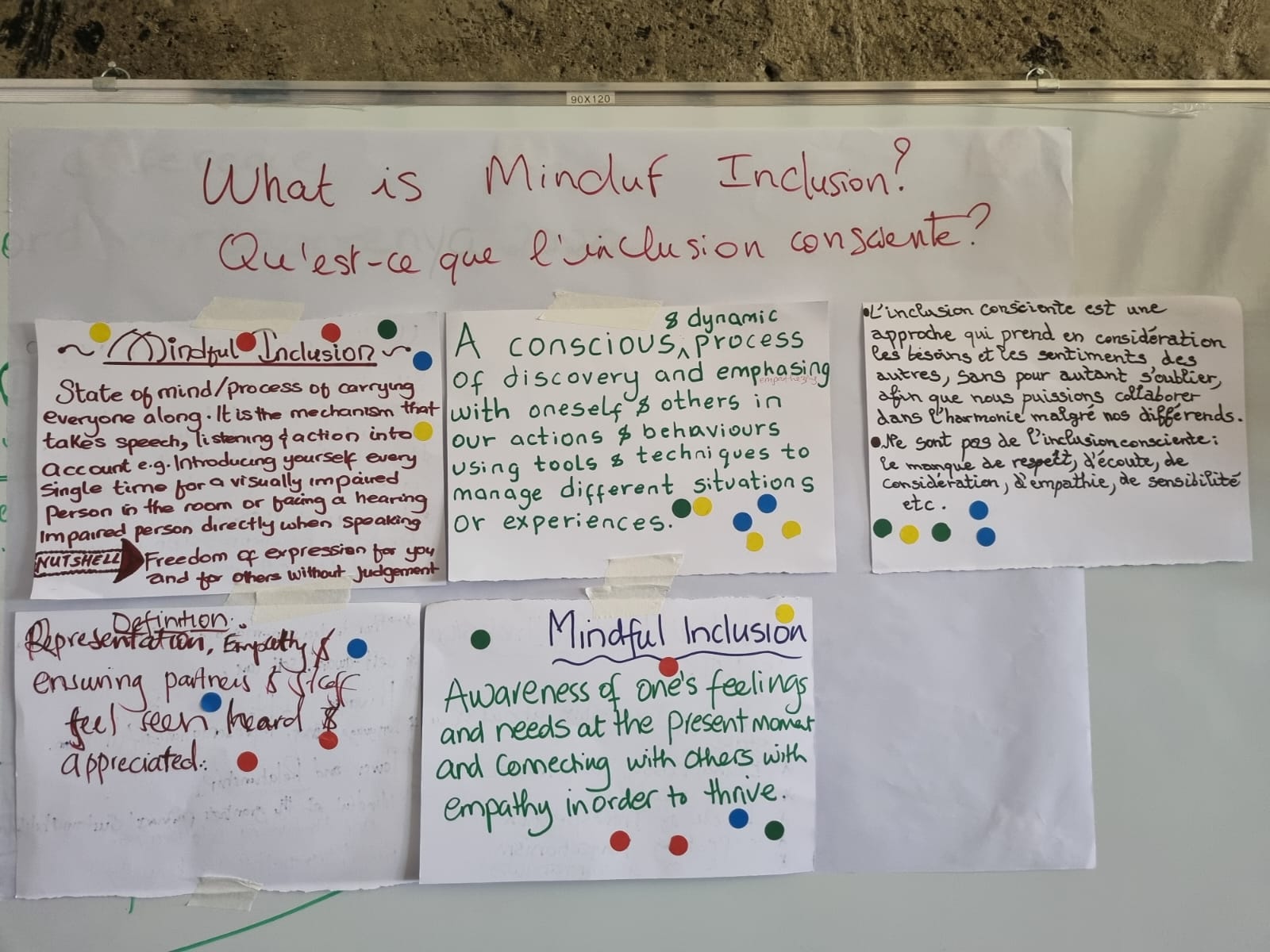#BreakTheBias in gender inequality and raise women’s participation.
By: Bounyali Souvankham
Voice in Laos interviewed Miss Palina Thongouthoum, an Oxfam programme officer, to commemorate women’s achievements and raise awareness about women’s participation on March 8th, 2022. This interview covers the stories shared by Palina, a woman who is passionate about gender equity, explaining how women’s involvement is crucial to sustainable development, environmentally and financially, and how she manages to encourage equal participation when working with the local community.
Let’s get to know Palina and her work.
Palina joined Oxfam at a young age as a business supporter 7 years ago and has steadily gained experience and a passion for development work. She currently manages the Responsible Agricultural Investment (RAI) project and previously worked as an Oxfam safeguarding focal point in Laos. Hope this inspires young women out there who seek to improve for personal development and community.
The Responsible Agricultural Investment (RAI) project applies to enterprises that invest in natural rubber plantations and processing. This project involves working with upstream and downstream enterprises and organizations involved in the natural rubber industry and their value chain management. It is crucial for investors to identify, assess, and arrange operating procedures with clear accountability, considering sustainability risks and opportunities in their investment plan.
The project is implemented in Oudomxay province and aims for the enterprises/investors who are involved in rubber agriculture to establish policies and instructions, communicate with stakeholders (local communities) to be aware of due diligence, and environmental and social impact assessment.
“It is essential to ensure that all investors meet local needs and operate responsibly in accordance with international good practice. Especially when the investment in rubber plants is a prominent and critical part of the livelihood of local people in Oudomxay province. Bring all parties in the household (men and women) to be involved in the early stages since planning and decision-making can boost the productivity, profitability, and sustainability of agriculture and can help respond to risks and end climate change from using excessive chemicals to grow rubber plants” Palina stated.
How does her work correspond with the Voice programme? Is there any opportunity for collaboration to increase women’s participation?
In addition, the role of safeguarding entails responsive gender safeguarding, gender-based violence, and gender equality for gender inclusion. As she was invited to disseminate on safeguarding to Voice partners, she had the opportunity to link and learn with the Voice team on how they facilitate the session creatively, got rid of the traditional way of training, and turned to an innovative approach to communicating and hosting activities for mutual and participatory learning.
Palina continued by stating that as she observed the Story of Change principle and participated in PhotoVoice, Storytelling and several sessions initiated by the Voice programme – she eagerly adopted the technique together with her team and partners to secure the small grant proposal of 2 innovative funds worth 40,000 EUR and 50,000 EUR through pitching and story of change video instead of using traditional word documents and PowerPoint presentations to innovatively show the problem, solution, outcome, and impact of the proposal.
Most Significant Change in Small Enterprise, Big Dream Project
ເລື່ອງ: ເທວະດາຊ່ວຍແດ່/God Help Please (Drama) – Cutting Plastic Pollution in Laos – YouTube
| As of 2022, do women leadership and participation still underrepresented in Laos?
From the RAI project angle, women are unquestionably a key player in climate change, contract farming, and rubber plantation. In fact, women’s leadership and participation have been improved whereas previously, 99 per cent of the meeting attendees were men who also received training, solicited feedback, and devised a plan for planting location. Women, on the other hand, were the ones who carried out the work and, as a result, were directly affected by chemicals and insecticides.
We respond to this by promoting legal compliance with applicable laws and regulations set by the Government of Lao PDR. Each meeting is designed to include gender-balanced participants in order to ensure that all members of the local community have equal access to rights and benefits, to hear and acknowledge differing viewpoints – while promoting inclusive decisions and activities that have economic, social, and environmental consequences, and to reveal the potential degree of impact. Women will be educated on how to plant safely and effectively, as well as the impact of their actions and other pertinent information that will assist them in making informed decisions.
“To ensure a financially and environmentally sustainable future, women should be involved in decision-making and planning from the start. In this regard, they have the same right as men to be educated on how to manage, be protected, and share. Men’s names are no longer the only ones on the title of the landlord, but women should have the same right. It’s no longer reasonable to say that intellectual work is for men and physical labour is for women.” Palina affirmed.
Do you think a space for young people to talk about gender is important?
“A space for young women to be themselves and speak up is essential, but that space must be accompanied by a sense of security. In Laos, a male-dominated power structure still exists, but it is more lenient compared to the past. Because women are not used to presenting or speaking, they are self-conscious about their accents and word choices, so they delegate this task to men.”
| What are the key components in creating a safe space for women in the community?
There are many factors in creating a safe space – Palina’s lesson is that verbal communication is not the only means of communication. Drawing, writing, body language or even communicating with them in their native language is a great way to allow women to express themselves, from my observation.
“Simply encouraging women to speak up would be ineffective if men did not understand and support them. It has been many decades since men have led in such political participation; it will also take some time for women to adjust. What men can do to help this change is to be open to listening and refrain from teasing or mocking women who don’t perform well at first. It’s fine. For us facilitators, it is critical to observe and always consider the fact that in order for women to speak, they must feel comfortable, and we must be able to distinguish between forced and voluntary participation. As a result, never call out their name. Actions speak louder than words and seeing women participate in meetings and political space is a significant step forward.” The quiet women are not a reflection of our failure to facilitate; sometimes, those who actively speak do not reveal whether or not one is active and willing to take action. As a result, these significant changes will undoubtedly take time, and the long-term impact will be realized.”








